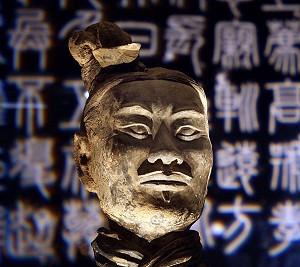Family Connections
On January 8, 1976, Zhou Enlai, Premier of China, died. His death was an important step in the transition of power between Communist Party leaders Mao Zedong and Deng Xiaoping. Zhou had no children but adopted the child Li Peng.
Li Peng would become himself premier of China, and became infamous for backing the Tiananmen Square Massacre of 1989. He later became one of the key players in the persecution of the Falun Gong spiritual practice.
Loyalty and Patriotism
Wen Tianxing, a scholar and Prime Minister in the Song Dynasty, was executed on January 9, 1283 . Wen is a famous symbol of loyalty and patriotism within China. He was captured by the invading armies of Kublai Khan, but refused to surrender. He composed the classic Song of Righteousness before his death.
Statues commemorating his service to China have been placed around the country.
Influencing Modern China
On January 11, 1868, Chinese educator Cai Yuanpei was born in Zhejiang province.
Cai would go onto hold important positions in teaching institutions before studying philosophy in Germany in 1907.
Upon his return to China in 1916, his criticism of traditional Chinese culture became influential in bringing about the May Fourth Movement—the beginning phase of China’s violent transition to communism.
Attempting Reform
On January 12, 1875, the Guangxu Emperor succeeded to the throne.
He is famous for attempting to institute the Hundred Days’ Reform, a set of sweeping social and institutional changes proposed in response to China’s defeat by Japan in the First Sino-Japanese War.
However the Guangxu Emperor however, was thwarted by his aunt and surrogate mother, Empress Dowager Cixi. Guangxu died under house arrest, his reforms failing.
Against the Manchus
Famous militarist and patriot Yuan Chonghuan was arrested on January 13, 1630. Yuan won a reputation for his fighting spirit, demonstrated through many difficult victories against the Manchurians in the north.In the end, Yuan was framed by his Manchu enemy, and executed by the Emperor. He was widely ill-regarded for several hundred years, until his name was officially cleared.





